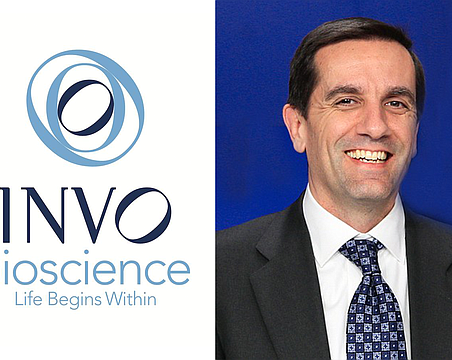REVIEW SUMMARY
Indutrys. Money management
Trend. Managers are leaving big institutions to form their own companies.
Key. Chaos in the financial services industry creates opportunities for money managers to start their own firms.
After the last few years of chaos in the financial markets, many investors have lost confidence in the people who manage their money.
Lehman Bros. and Bear Stearns disappeared, Bank of America acquired Merrill Lynch and investors withdrew billions of dollars from well-established firms such as Naples-based Private Capital Management after a disastrous 2008.
In this environment, three Naples-based money managers who previously managed millions of dollars for large firms have decided to strike out on their own. Each has opened a small boutique wealth-management firm, betting that wealthy individual investors are more receptive to their services than they might have been in better times.
When it comes to managing money today, it's hard to argue that bigger is better.
“These big institutions haven't been able to manage their own risks. How can they manage clients' risk?” says Pat Antonetti, former senior vice president with Fort Pitt Capital Group who has formed Antonetti Capital Management.
Fueling their entrepreneurial urge are financial service companies such as Fidelity and Charles Schwab, which provide low-cost back-office services to these money managers ranging from custody of assets to trust services and monthly statements. The outsourcing of that capital-intensive work allows managers to establish their own firms for less than $100,000 without having to build a huge staff to handle paperwork and spend months filing regulatory documents.
Turning over custody of client assets to firms such as Fidelity or Schwab also reassures investors who are concerned about the safety of their money. One of the reasons convicted swindler Bernie Madoff was able to steal from his clients was because he had custody of the assets he was managing.
Generally, these managers seek out individuals who have at least $500,000 to invest and charge for their services by a percentage of assets under management, usually around 1% annually. They promise to do more than select the right investments, helping to coordinate estate planning, tax planning and charitable giving for entire families.
For example, investment manager Andy Hill partnered with Jennifer Figurelli to form Andrew Hill Investment Advisors after they both left Comerica Bank. Figurelli is a former bank trust officer who will help clients coordinate estate-planning issues at no extra charge.
“We feel that's a competitive advantage,” Figurelli says.
These managers also now feel a certain sense of freedom to practice their craft without corporate interference. “I'm not a salesman anymore,” says Matt Mathias, who started MWM Investment Consulting in September and currently manages $50 million. He was formerly with U.S. Trust and PNC Bank.
Instead of pushing a particular stock or being boxed into an investment style dictated by a distant investment committee, these managers can choose strategies they believe will work best for their clients. “I wish I had the resources to do it years ago. It's so empowering and liberating,” Matthias says.
Investment styles
Picking investments that suit their clients' objectives lies at the heart of these new investment boutiques. But each manager has his own preferences.
For example, Hill focuses on a trend called socially responsible investing. He reasons that investing in companies that adhere to environmental conservation, social good and open governance will give them an advantage over their competitors and therefore reward investors.
Hill is also one of the few managers who mix different kinds of analyses when selecting individual stocks. For example, he combines technical analysis such as investor sentiment and capital flows with fundamental analysis that examines specific company performance.
Most managers adhere to fundamental analysis only. “That's where three-quarters of our competitors stop,” says Hill.
Antonetti prefers to use exchange-traded funds for exposure to different sectors of the economy. These low-cost funds, called “ETFs,” are baskets of stocks that track an index and trade on the exchanges like stocks. “You can build a portfolio with ETFs that takes some of the guessing game out of picking winners,” says Antonetti.
For example, no one really knows which financial services firms will emerge successfully from the recession, but an ETF that contains a diversified group of financial companies assures that investors will benefit from the recovery in that sector.
“You can overweight or underweight market sectors depending on what's going on in the economy,” Antonetti says. The ETFs are easy to trade and the fund management expenses are usually low.
Meanwhile, Matthias' strategy is to help clients select asset allocation based on their cash flow needs. Then, he picks from among dozens of fund managers who specialize in selecting specific kinds of stocks, such as those of small companies or those that promise rapid growth or high dividends.
Matthias filters managers based on past performance relative to the risks they take, how their results compare against their peers and how long they've been investing. Then, he sends a 20-page questionnaire to managers who make the cut. Questions include how frequently they trade to how they would invest $20 million today.
Financial concierge
To stand out from the dozens of banks and large firms crowding the wealth-management business in Naples, some of these new managers say they add value by providing guidance on issues such as estate planning, insurance and taxes.
Although Matthias says he hopes to manage as much as $1 billion, he plans to limit the number of clients to 25. For an additional fee, Matthias provides multi-generational planning in addition to investment management.
Limiting the number of clients means Matthias says he won't be spread thin and can devote the time needed for complex issues unique to high-net-worth individuals.
Meanwhile, Figurelli says her previous experience running a trust department gives her insight into how to help clients tailor their estate-planning needs. Many large banks' trust departments have relegated her target clients — those with $1 million to $10 million in assets — to trust officers in distant call centers.
Figurelli figures she can provide more personal service to that crowd.






